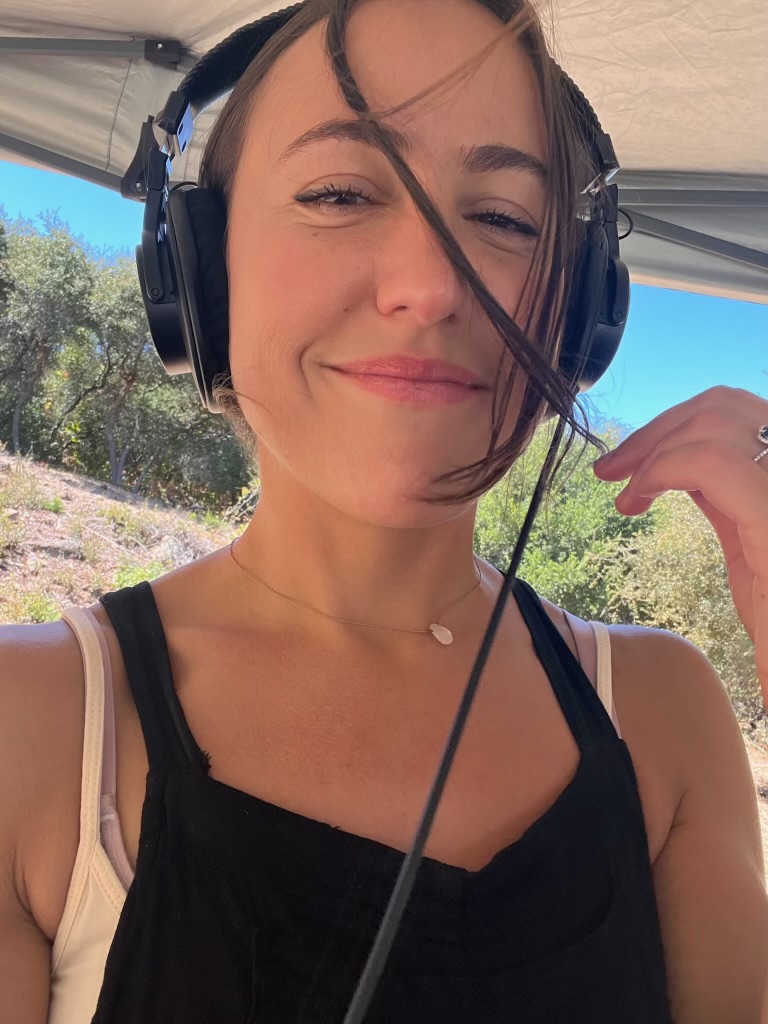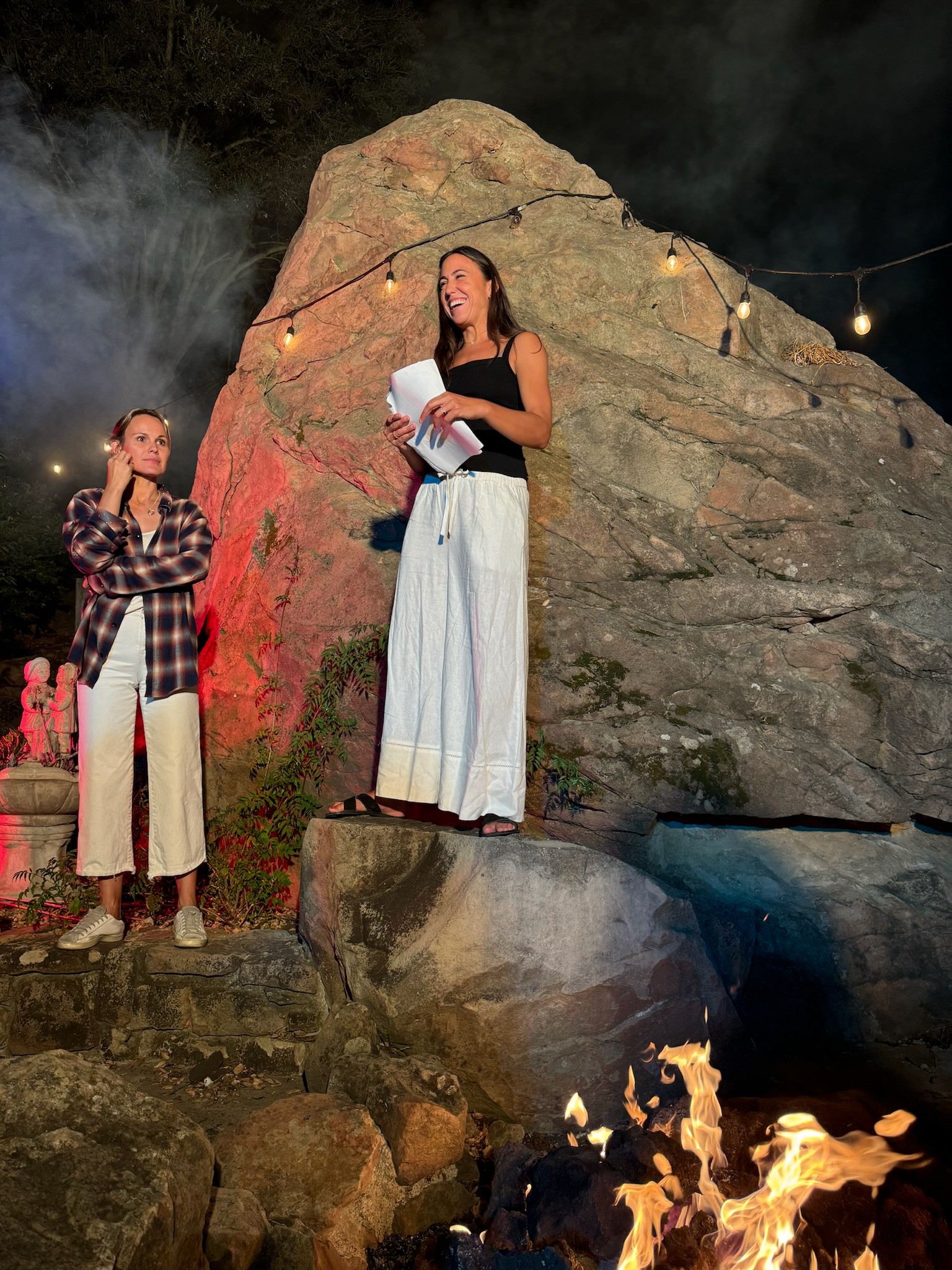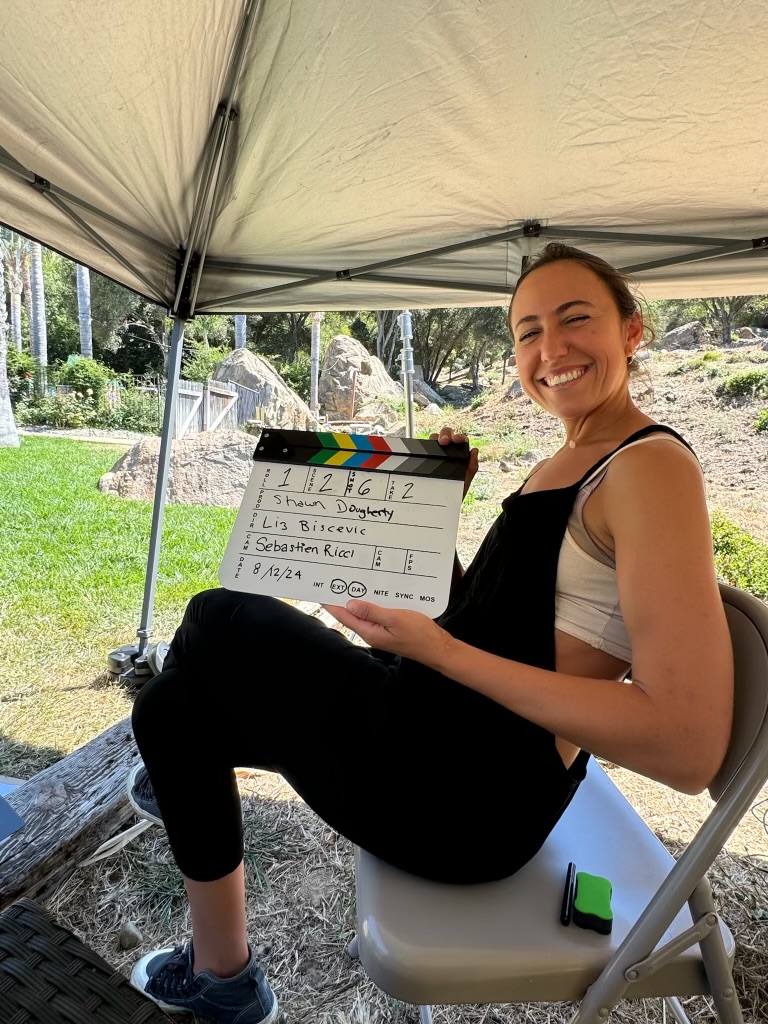We caught up with the brilliant and insightful Liz Biscevic a few weeks ago and have shared our conversation below.
Liz, appreciate you joining us today. How did you learn to do what you do? Knowing what you know now, what could you have done to speed up your learning process? What skills do you think were most essential? What obstacles stood in the way of learning more?
I tell so many people this—if you want to learn how to write a screenplay, learn from those who’ve already done it. That starts with reading as many scripts as possible. If there’s a movie or show you love, see if the script is available and study it—pay attention to how the writer transitions between scenes, how they structure dialogue, and how they describe characters and action.
From there, find a mentor—someone whose work you admire and who’s willing to guide you—or take a structured course. After writing my first script, I took a screenwriting series through UCLA Extension. Even though I had already completed a script, those classes were invaluable. The first focused on outlining and Act 1, the second on Acts 2 and 3, and the third on revisions. Getting feedback from both peers and an experienced instructor helped me understand how my work was perceived, where my strengths were, and where I needed to improve.
If I could have sped up the learning process… I’m not sure that’s possible. Writing is one of those crafts where experience is the best teacher. The only way to get better is to keep writing, keep getting notes, and keep refining. Whether it’s from friends, mentors, or contests—just keep going.

Great, appreciate you sharing that with us. Before we ask you to share more of your insights, can you take a moment to introduce yourself and how you got to where you are today to our readers.
I’m Liz Biscevic, a screenwriter, director, and storyteller based in Los Angeles. Like a lot of writers, I’ve been telling stories for as long as I can remember, but I didn’t take it seriously as a career until after having kids. I had spent years working in marketing and content creation, but after my last full-time job required me to return just three days postpartum—or risk losing my job—I realized I needed to build something for myself. That was the moment I committed to my passion: storytelling.
I started with screenwriting, devouring scripts and taking classes to hone my craft. Over time, my work began placing in major competitions, which gave me the confidence to keep going. Eventually, I made the leap into directing and producing my first short film, The Land Must Feed, which is now on the festival circuit.
At my core, I create stories that explore complex emotions, human flaws, and the thin line between the ordinary and the unsettling. I’m drawn to psychological thrillers and character-driven narratives that leave audiences questioning their own perceptions. But storytelling, for me, isn’t limited to one medium.
I also have a deep love for children’s storytelling, which led me to create Princess Pen Pals, a project that started as a letter-writing subscription service and is now evolving into a low-stimulation YouTube storytelling series for kids. My goal with this project is to provide a calming, engaging space for young audiences to experience immersive storytelling without the overwhelming effects of fast-paced animation.
On top of that, I just completed my first children’s chapter book, a project that has been a labor of love and another step toward creating stories that inspire and entertain across different audiences.
For those discovering my work for the first time, I want them to know that I believe in the power of storytelling to challenge perspectives, spark conversations, and immerse audiences in worlds that feel both relatable and expansive. Whether it’s a psychological thriller, a children’s book, or a new way to bring storytelling to kids, my goal is to create experiences that remind people they’re not alone—that there are a million and one worlds where they belong. More than anything, I want my stories to inspire others to see themselves as the main character of their own journey.
We’d love to hear your thoughts on NFTs. (Note: this is for education/entertainment purposes only, readers should not construe this as advice)
I actually wrote an entire script about this! My award-winning screenplay Amethyst follows a failing sculptor whose husband becomes obsessed with NFTs, convinced they’ll be his ticket to wealth and status. As his obsession spirals out of control, it ultimately leads to his downfall, while our main character is left to pick up the pieces of their crumbling reality. In the end, it’s her slow and steady dedication to her craft—not get-rich-quick schemes—that leads to her self-sufficiency and success.
As for my personal view, I think NFTs are a form of art and absolutely have a place in the creative world. But like all art, their value is subjective. Investing in NFTs with the expectation of instant wealth is a fool’s dream—just like buying a painting and assuming it’ll sell for millions overnight. At the end of the day, art is worth what people are willing to pay for it, and hype alone can’t sustain value forever.

What society can do to best support artists, creatives, and a thriving creative ecosystem?
One of the best ways society can support artists and a thriving creative ecosystem is by investing in new voices and taking risks on emerging talent. So often, funding, opportunities, and visibility go to artists who have already “proven” themselves, but every established creator was once an unknown. If we want the industry—and art itself—to evolve, we have to be willing to take chances on new perspectives, unconventional stories, and creators who don’t have an existing platform.
This means funding independent projects, offering grants to first-time filmmakers, commissioning work from fresh artists, and ensuring diverse voices aren’t just an afterthought, but a priority. It also means audiences playing a role—choosing to watch, read, and support work from emerging artists, not just the names and titles they already know.
I think artistic innovation happens when people are given the space to take creative risks without fear of failure. If society wants a thriving creative ecosystem, we need to invest in artists and stories before they become household names, rather than sticking to the formulas of what has worked in the past.
Contact Info:
- Website: https://www.lizbiscevic.com
- Instagram: https://instagram.com/lizbiscevic
- Linkedin: https://linkedin.com/in/lizbiscevic
- Youtube: https://www.youtube.com/@lizbwrites

Image Credits
headshot – Julia Baker
other shots – David Biscevic


